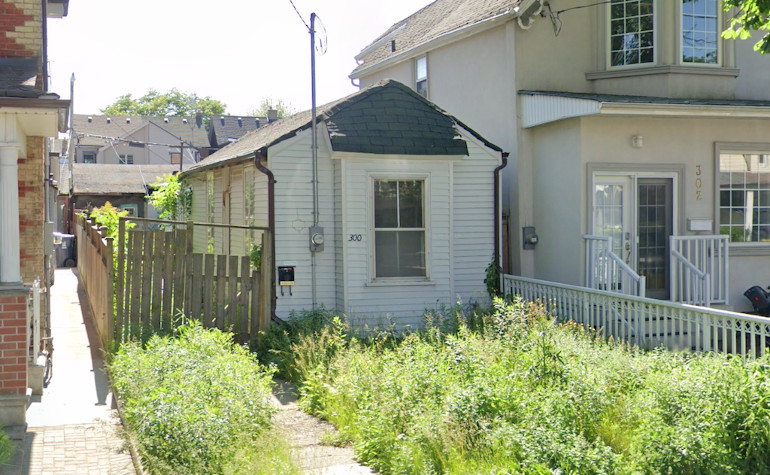Real “boldness” is the struggle for socialism!
Québec’s nationalist broad-left party, Québec Solidaire, presents its new electoral platform as “bold” and “realistic.” The party will target the middle classes with an anti-CAQ (Coalition Avenir Quebec, the current right-wing party in power under Francois Legault) platform focused on environmentalism and supporting small and medium-sized enterprises (SME). The November congress did not attack the ownership of large companies and real estate giants.
The 15th Québec solidaire (QS) Convention was held online from November 19 to 21, 2021. The participation rate seems to have reached a historic low with 300 people reliably online out of a possible 893. The convention focused on the adoption of the electoral platform for the fall 2022 provincial election. According to party spokesman Gabriel Nadeau-Dubois, the proceedings led to the adoption of the “best election platform” in the party’s history. The debates were a series of interventions by the party’s apparatus and parliamentary wings against the left of the party.
The leadership, the parliamentary wing and the various committees, have fueled a constant and organized offensive against all of the bold amendments proposed by the local associations. There was a lot of noise around greenhouse gas reduction targets. Behind the abstract promises, a foundational issue was ignored: the necessity of collectively taking control of the main levers of the Québec economy in order to overcome the crises of capitalism.
A strong opposition to democratic nationalization
A deluge of rhetoric swept the convention, seeking to discredit the amendments aimed at democratically nationalizing polluting companies, those in the oil and gas sector, mining and forestry, those that relocate, those that own more than 3,000 housing units or who leave their buildings and land abandoned, empty or neglected. These amendments stemmed from the party’s socialist forces. The amendments received the consistent support of a quarter of the delegates.
However, the amendment to “nationalize under regional control all industries producing renewable energy (wind, solar, etc.)” passed with 59 percent support.
The arguments put forward against nationalization all had in common the aim to leave space to businesses stemming from “the social economy,” therefore private, of the community sector or from cooperativism. It was not surprising to see the easy adoption of all the amendments aimed at widely financing SMEs.
A delegate from Sherbrooke (a large city outside Montreal) opposed to the expropriation of abandoned buildings – summed up the issue in a crystal-clear way: “We cannot attack the fundamental right to property!”
It is clear for which segment of the population this platform is really the “best.” Media commentators have noticed this pro-capitalist shift of QS. This claimed “political maturity” of QS members means the party will not disturb the status quo very much and will seek to present itself as a “credible” alternative to the CAQ.
Credible for whom, exactly?
These decisions are the result of an ongoing trend in the party in recent years. Driven by the leadership, its commissions and the parliamentary wing, the refusal to move in a more socialist direction now poses QS as the management party of capitalism, just like the old parties it denounces. This is the path followed by the Labour, Socialist and Social Democratic parties in the 20th century. This is the path of betrayal followed by broad left formations like SYRIZA in Greece and PODEMOS in Spain.
The new electoral platform will give the party full latitude to comply with the laws of the capitalist market. At the call of MP Ruba Ghazal, QS kept an open door to subsidize large companies, despite an amendment to abolish this financial assistance. According to her, this measure is necessary to attract these companies to Québec and make them adopt greener behaviour.
Most of the resolutions passed at the convention have absolutely nothing to do with the promise of the program to “go beyond capitalism,” which is written in the party’s program. The QS’s leadership is betting on enlarging its electoral appeal by courting young urban professionals, small entrepreneurs and small business owners. This is a risky bet given the political instability of the wealthy middle class who, for the most part, already vote for the Liberal Party, or even the CAQ. Which business people or owners are expected to conclude that QS is the party of profitability and economic growth?
Having the means for our ends
It is hopeless to expect private companies that want to maintain their profitability to accept the most radical elements of the QS program. Around the world, climate activists – including Greta Thunberg – are realizing that the voluntary, limited and non-coercive measures demanded from the private sector are getting us nowhere. Only by freeing industry of its profitability obligations will it be possible to make the changes necessary to combat climate change.
It is therefore fundamental and necessary to attack the property of polluting companies and nationalize them under the democratic control of workers. To achieve this, a massive counter-power, outside the parliament is needed, to overcome the resistance of big business.
If the QS still intends to overcome capitalism, it will require the nationalization of Québec’s main economic sectors as the main strategy. In the same vein, democratic nationalization is the best way to reclaim Québec’s territory, resources and trade from the hands of multinationals, a project that touches on QS’s goal of Québec independence.
No symbolic “breaking” from the Canadian federation, no abstract recognition of the rights of Indigenous peoples nor any nationalist book published (one is being marketed right now by the parliamentary wing of the party) by the members of QS will threaten the stability of the Canadian and Québec states. The relations of domination will remain intact without a relentless struggle against the control of the capitalist classes over political and economic institutions. It is precisely this control that breeds the national oppression of the various peoples of Canada.
Making Québec a country will require attacking the Canadian petro-state and its financial capitalist class by expropriating the banking system and the control of hydrocarbons. It is only by controlling these sectors that their activities can be transformed to tackle climate change and provide massive numbers of green jobs.
QS lags behind ongoing social movements
The devastating report by Canada’s environment commissioner identifies Canada as having one of the worst climate change records in the G7 since 2015. Rather than declining, GHG emissions have increased by 20 percent since 1990. This is what happens when the government’s green strategy is to subsidize energy companies and impose carbon taxes on them, even though these are some of the most “rigorous” environmental tax measures in the world.
In response, climate change movements are radicalizing around the world. Already in 2019, young people identified the problem with the slogan, “System change not climate change!” At COP26 in Glasgow this year, banners proclaiming that “Climate struggle is class struggle” and “Our climate crisis = Their profits” were visible everywhere.
QS loses credibility when it speaks of the “flexibility” of the private sector, the creation of cooperatives and the policy of the pay-as-you-pollute. How could private companies better meet society’s needs than the democratic planning of a QS government? The eco-fiscal and green capitalism approach is precisely the circumvention strategy used by current governments that intend on continuing with business as usual.
Out of step on housing issue
The same logic applies to the struggles for housing rights. Since the beginning of the pandemic, tenants in Berlin, Seattle and Gothenburg have achieved flamboyant victories by attacking big companies. In Québec, tenant organizations are campaigning for a rent freeze. In addition, the public takeover of abandoned buildings was promoted by several candidates during the Montréal municipal elections, including in the Mouvement Montréal program.
However, the solidarity deputy Andrés Fontecilla, official spokesperson for housing, and François Saillant, a former representative of FRAPRU (not-for-profit that fights for tenants’ rights), have put all their weight into blocking the proposals of rent freeze, expropriating abandoned housing and expropriating companies with more than 3,000 rental units. They said they did not know whether there were such owners in Québec to justify their refusal.
Yes, they exist. The men who run these companies are among the richest in Québec, including the owners of private residences for the elderly (Maurice, COGIR, Selection, etc.). QS has finally taken a position to nationalize the private CHSLD (long-term hospitalization institutions for the elderly). To provide housing rights for seniors in a broad sense, the party will have to double check its notes since 90 percent of what is currently offered is for profit and is mostly found within these large companies.
Mayors to watch out for
QS did not give itself the means to achieve its ambitions at its 15th Congress. Worse still, activists will have only a handful of concrete demands to offer ordinary workers in the next election. A gap has been created between the party and the social and trade union movements engaged in struggles. The development of coherent and massive social struggle strategies will be more difficult.
QS’s demands for social justice, climate and housing are very similar to those of the Liberal and NDP campaigns last fall. Nothing motivated the masses to enthusiastically join either party. QS risks remaining with the same general formulas against the climate and housing crisis, while attempting to orient itself towards the urban, home-owning middle classes.
It is true that this strategy paid off during the autumn’s municipal elections. Many QS activists participated and funded the successful campaigns of Valérie Plante in Montreal, Catherine Fournier in Longueuil and Évelyne Beaudin in Sherbrooke. Some former QS candidates were elected under these municipal banners.
While we welcome young women taking up elected positions, they will not be able to fight the climate crisis or the housing crisis without attacking the interests of big companies. The mandate of these mayors should be monitored, as it will provide an overview of the challenges and reactions that would await an elected QS provincial government in 2022.
Nominations to be won
The next step in this alliance of so-called progressive networks will be the by-election in Marie-Victorin, where Longueuil is located. Nominations will also be held in all local QS associations for the 2022 provincial election. The choice of the next candidates will be decisive for the attractiveness of QS in the eyes of workers. Will they make it possible to see the party and use it as a vehicle of struggle for the concrete improvement of living conditions? The contest for nominations will be a new opportunity to defend ideas, but especially socialist methods, in order to give them a mass reach.
The ability of QS to change society depends on the level of political radicalization of its members. This radicalization stems from the solidarity lived from fighting on different fronts in everyday life. The radical ideas of the program represent nothing until they are animated in concrete terms on the ground and within the working class. The issue for the socialists in QS is to give substance to their ideas, their slogans and their demands. These ideas will only threaten capitalism when they mobilize masses of people who will express themselves as a political force.
As things are, QS political campaigns are mainly oriented towards public relations and are strictly for internal development. It is up to socialists to turn these campaigns into militant organization rooted in communities, as well as tools for political training on the economic and social contradictions at the root of the current crises.




